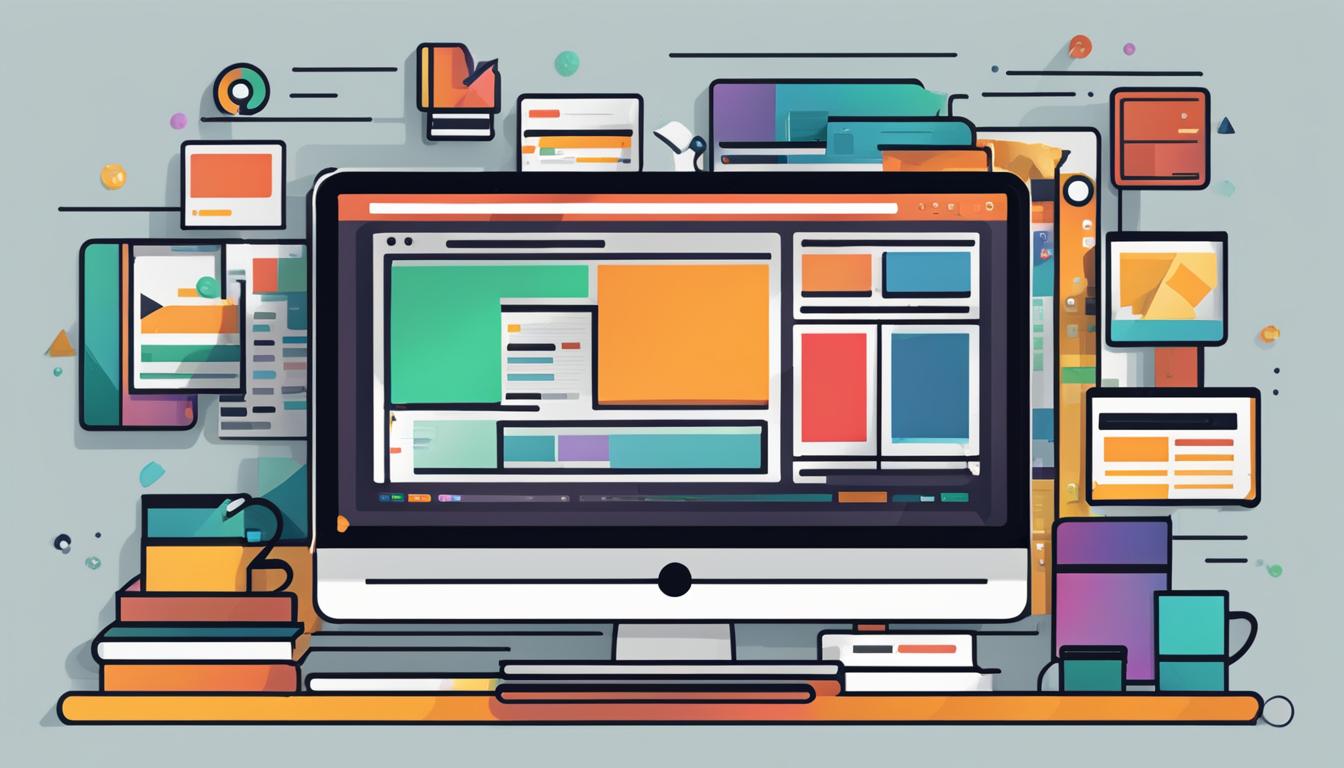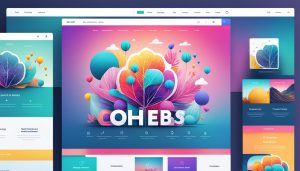What can I do with a web design and development degree?
Did you know that the demand for web designers and developers is projected to grow by 13% in the next ten years? With the increasing reliance on technology and the internet, businesses are seeking professionals who can create visually appealing and functional websites.
Studying web design and development provides you with the technical and design-related skills needed for a career in the web, software development, and computer science industries. Jobs directly related to your degree include Applications developer, Game developer, Multimedia programmer, Multimedia specialist, SEO specialist, UX designer, UX researcher, Web content manager, Web designer, and Web developer. Additionally, there are many other job options where a web design and development degree would be useful, such as Artworker, Cybersecurity analyst, Database administrator, Digital marketer, Information systems manager, IT sales professional, Software engineer, Software tester, Systems analyst, and Technical author. Many employers accept applications from graduates with any degree subject, so the career options are not limited to this list.
Key Takeaways:
- A web design and development degree opens up diverse career options in various industries.
- Job titles directly related to the degree include Applications developer, Web designer, and UX designer.
- There are numerous other job opportunities where a web design and development degree would be valuable.
- Employers often accept applications from graduates with any degree subject.
- The demand for web designers and developers is projected to grow by 13% in the next ten years.
Web Design and Development Career Opportunities
With a web design and development degree, you have access to a wide range of potential opportunities in the field. Depending on your interests and aspirations, you can explore various career paths that allow you to apply your skills and knowledge effectively. Here are some potential opportunities to consider:
- Working in web design agencies specialized in creating and maintaining websites for different organizations
- Establishing your own design business or working as a freelancer, offering your services to clients
- Exploring jobs in software engineering, testing, or technical writing
- Pursuing a career in digital marketing, leveraging your understanding of web development and design
The salary expectations for web design and development careers vary depending on the specific role and level of experience. However, they generally offer competitive earning potentials, providing you with a stable and rewarding professional path.
Moreover, the field of web development offers numerous creative career opportunities. These allow you to combine your technical skills with your artistic abilities, enabling you to express your creativity while building functional and visually appealing digital experiences.
With the ever-growing demand for web design and development expertise, there is no shortage of opportunities for skilled professionals in this field. By leveraging your degree and continuously expanding your knowledge and skills, you can thrive in a career that offers both personal fulfillment and financial stability.
https://www.youtube.com/watch?v=thWoyifjQcM
Gaining Experience in Web Design and Development
Building a strong portfolio of your design and development skills is crucial in the web design and development field. It’s recommended to gain work experience outside of your degree program to showcase your abilities and enhance your employability.
One way to gain industry experience is through summer placements or part-time positions. These opportunities allow you to apply your skills in real-world scenarios and learn from professionals in the field. Whether it’s working with a web design agency or a software development company, these experiences provide valuable insights into the industry and help you build your portfolio.
Another option is to take advantage of community schemes, where you can contribute to projects that benefit the general public. These schemes allow you to demonstrate your technical knowledge and skills while making a positive impact on others. They can include activities such as helping individuals with their internet usage or collaborating on website creation for non-profit organizations.
Additionally, some universities offer the option of a year-long paid placement during your studies. These placements provide valuable industry experience and allow you to work on real projects alongside professionals in the field. Not only do they enhance your practical knowledge and skills, but they also give you a competitive edge when applying for future job opportunities.
By gaining work experience, whether through summer placements, community schemes, or university placements, you not only strengthen your portfolio but also develop valuable connections and insights into the industry. These experiences will set you apart from other candidates and increase your chances of success in the competitive field of web design and development.

Typical Employers in Web Design and Development
When it comes to web design and development, there is a wide range of employers to consider. Many organizations choose to hire web design agencies that specialize in creating and maintaining websites. These agencies have the expertise and resources to handle all aspects of web development, ensuring that websites are functional, visually appealing, and user-friendly.
Alternatively, some companies prefer to have in-house web designers or teams. These individuals work directly for the organization and are responsible for designing, developing, and maintaining the company’s website. In-house web designers are valuable assets as they understand the company’s branding and requirements intimately.
For those who prefer more flexibility, setting up their own design business or working as a freelancer can be an excellent option. This allows web designers and developers to have more control over their projects, clients, and schedule.
In addition to web design agencies, in-house web designers, and freelancers, there are other potential employers in the field. Small design studios and advertising firms often require web design and development services to create websites or digital marketing materials. These organizations value creative and technical talent to provide compelling and visually striking designs.
Moreover, the web design and development industry intersects with IT and telecommunication companies, offering opportunities beyond traditional web design roles. IT and telecommunication companies often require individuals with development skills to work as software engineers, testers, or technical writers. These roles involve designing and building software solutions, ensuring their quality and functionality.
It’s essential to research and explore different employers to find the best fit for your interests and career goals. Consider the type of work, company culture, and opportunities for growth and advancement when evaluating potential employers.

Sample Table: Employers in the Web Design and Development Field
| Type of Employer | Description |
|---|---|
| Web Design Agencies | Specialize in creating and maintaining websites for other organizations |
| In-House Web Designers | Employed directly by organizations to design, develop, and maintain their websites |
| Freelancers | Independent web designers and developers who work on a project basis |
| Design Studios | Small design firms that offer a range of creative services, including web design and development |
| Advertising Firms | Agencies that provide advertising and marketing services, often requiring web design and development for digital campaigns |
| IT and Telecommunication Companies | Employ individuals with development skills, offering roles such as software engineers, testers, and technical writers |
Whether you choose to work for a web design agency, as an in-house web designer, freelancer, or with other types of employers, the web design and development field offers diverse opportunities to showcase your skills and contribute to the digital landscape.
Skills Acquired with a Web Design and Development Degree
As a graduate with a web design and development degree, you will possess a diverse set of technical and transferable skills that are highly valued in the IT sector and beyond. These skills are acquired through a combination of project work and theoretical study, ensuring a well-rounded education that prepares you for success in your career.
Technical Skills
With a web design and development degree, you will gain proficiency in a wide range of technical skills. These include:
- Data analysis
- Database design
- Digital marketing
- Graphics and design
- Multimedia production
- Programming
- Scripting/coding
- Software development
- User experience design
- Web application development
- Website design
Transferable Skills
In addition to technical skills, a web design and development degree also equips you with a range of transferable skills. These skills are valuable in various industries and contribute to your overall employability. Some of the transferable skills you’ll develop include:
- Communication and presentation
- Problem-solving
- Project management
- Research
- Teamwork
- Attention to detail
- Time management and organization
These transferable skills complement your technical expertise and allow you to effectively collaborate with colleagues, manage projects, and communicate complex ideas to stakeholders.
The combination of technical skills and transferable skills acquired through a web design and development degree provides you with a competitive edge in today’s job market. Whether you choose to pursue a career as a freelancer, work for a web design agency, or start your own business, these skills will enable you to excel and make a significant impact.
Further Study Options in Web Design and Development
If you are looking to expand your expertise in web design and development, pursuing a Master’s degree can be a valuable option. These programs are designed to provide in-depth knowledge and specialization in specific areas of design, development, or other computing fields. A Master’s degree typically consists of a combination of taught modules and project work, allowing you to gain advanced theoretical knowledge and practical skills.
Alternatively, gaining a teaching qualification, such as a PGCE, can open doors to exciting opportunities in education. With a teaching qualification, you can share your passion for web design and development by teaching IT or computing at the secondary school level or in a further education college. This path allows you to not only contribute to the growth and development of students but also enhance your own knowledge and skills in the process.
Further study in web design and development can provide you with a competitive edge in the job market and open up new career prospects. Whether you choose to pursue a Master’s degree or a teaching qualification, these options will help you deepen your understanding of the field and keep up with the latest industry trends. So, consider investing in your education and take advantage of the opportunities that further study can offer.
FAQ
What can I do with a web design and development degree?
What are the potential career opportunities for web designers and developers?
How can I gain experience in the web design and development field?
Who are the typical employers in the web design and development field?
What skills will I acquire with a web design and development degree?
Are there further study options in web design and development?
- SEO for Entry Door Services - April 24, 2025
- Boosting Property Value: Why Halifax Windows and Doors Are a Smart Investment - April 24, 2025
- The Business Cost of Injury: Why Personal Injury Law Matters in a Financial World - April 16, 2025





















Post Comment
You must be logged in to post a comment.